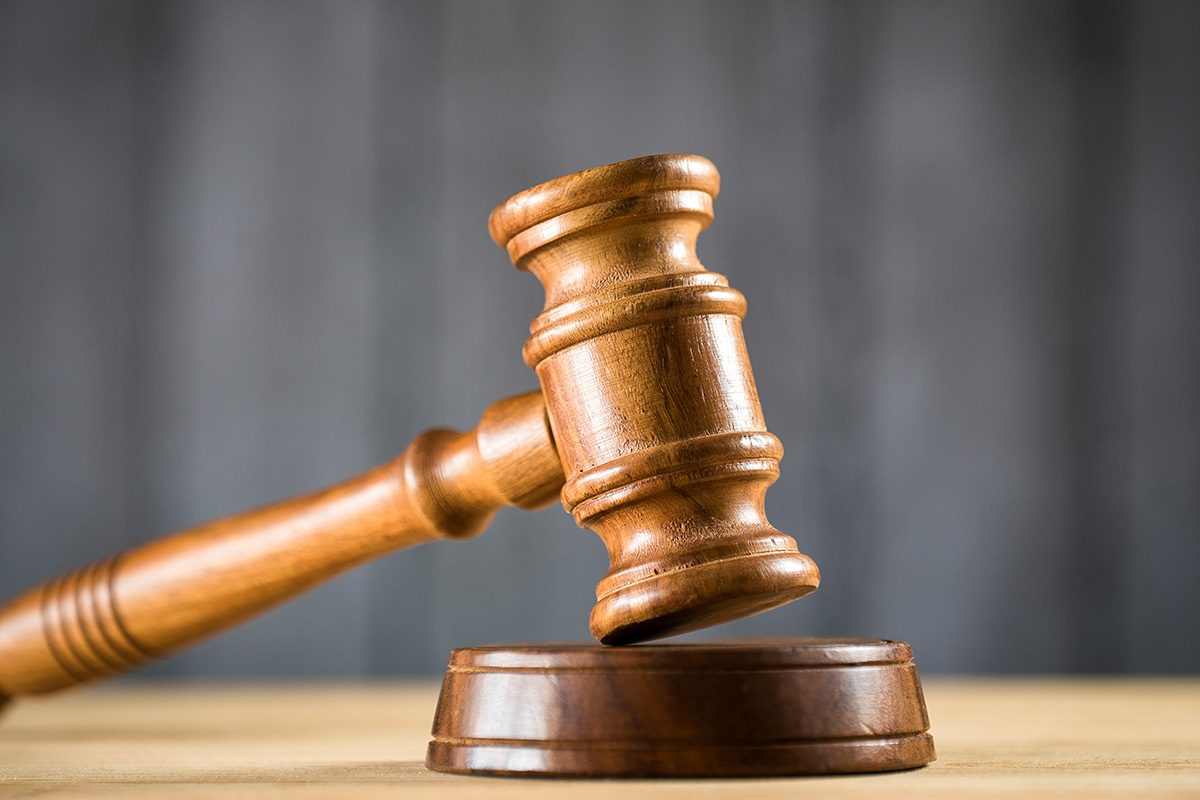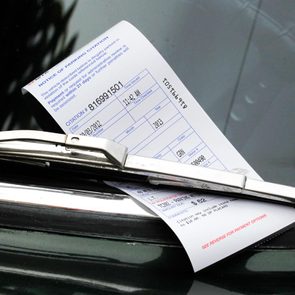You should expect a jury summons at some point. Before you skip out, here's what happens if you ignore jury duty.

Here’s What Happens If You Ignore Jury Duty

We’ve all been there—getting that dreaded jury duty summons and instantly hoping it’ll just go away. Showing up can mean hours of waiting around the courthouse, only to find out if you’re even needed. Meanwhile, your whole day—work, errands, personal plans—goes completely off track. But if you’ve been summoned and are tempted to skip it, you’re probably wondering: What happens if you ignore jury duty?
To get to the bottom of it, we spoke with legal pros including attorney Joshua Goldstein, criminal defense lawyer Randolph Rice and attorney Paul Marriett. Whether you’re curious about avoiding jury duty consequences (which can vary by state), wondering if you might qualify for an exemption or just need a reason not to blow it off, we’ve got you covered.
So keep reading—because we’re breaking down how to respond to a jury summons, what happens if you ignore jury duty and why it’s better to deal with it than dodge it.
Get Reader’s Digest’s Read Up newsletter for more knowledge, fun facts, humor, cleaning, travel and tech all week long.
What is a jury summons, and why is it legally binding?
A jury summons is an official notice from a court requiring you to appear for jury duty. This means you’re getting called to potentially serve on a jury for a criminal or civil trial. The first thing to understand about jury duty is that if you get called, it’s mandatory. “The letter notifying you of your selection for jury duty is a legally enforceable court summons,” explains Goldstein. So if you’re looking to opt out, you can expect penalties for skipping jury duty.
What happens if you ignore jury duty in the U.S.?

If you ignore any court summons, there are potential consequences, notes Rice. However, courts tend to take particular offense at those who fail to appear in response to a jury summons. Plus, the jury summons laws vary by state. According to Merriett, they can range from receiving another summons for a different date, all the way up to criminal penalties, including fines and even incarceration of up to 180 days. Even if you don’t end up with a fine or jail time, points out attorney Vik Monder, you might end up investing more time defending your case than you might have as a juror on someone else’s.
Larger metropolitan areas are more likely to take more aggressive action against a “no show,” points out attorney Stewart Guss. But no matter how big or small your metro area, you should assume you’ll be held accountable. For example, in a recent year in Massachusetts, a total of 48,000 people were fined $2,000 apiece. Texas has one of the most severe penalties, attorney Edith Pearce tells us. “Failing to show up can lead to a fine of up to $1,000 and up to six months of jail time.” Even if you’re allowed to explain why you skipped out on jury duty, it’s still in the judge’s prerogative to punish you with fines and incarceration, Rice points out. And whatever the legal penalty, skipping has the effect of flagging your name in the system. Next time you want, or legitimately need, to miss jury duty, you may be out of luck.
Can you reschedule or be excused from jury duty?
Let’s say you’re planning to be out of town on the date for which you’ve been summoned. “You have options,” Rice explains. In most jurisdictions, you can request a “postponement” online. If your jurisdiction doesn’t offer the online option, you may be required to mail a letter stating your reason for requesting a postponement. In some cases, you can request by phone. “Check with the court the day before you are to serve to make sure your presence is still required,” Rice advises. “There’s always a chance they won’t need you.”
Now, let’s say you have every intention of showing up for jury duty, but at the last minute, your car breaks down, or you’re sick. In that case, says Rice, you should contact the court immediately to let them know your situation. And note: You probably won’t be able to use this excuse more than once.
What’s more, some categories of people are automatically excused from jury duty, including those on active military duty, firefighters and students who are residents out of state. But even they have to follow a specified procedure for getting excused. “The best bet is to carefully read the jury summons when it arrives,” says Guss. “Both the reasons and the procedure should be clearly spelled out.”
What steps can you take if you’ve ignored a jury summons?
Missed your jury summons and wondering what happens if you miss jury duty? Don’t panic—but don’t ignore it either. Most courts are pretty understanding if it’s your first time, especially if you reach out quickly. Call or email the jury services office (you can usually find the info on your original summons or the court’s website), explain what happened and ask how to reschedule. Whether you forgot, didn’t see it or just spaced—it happens. Being upfront and polite can go a long way in getting it sorted without penalty.
Why should you go to jury duty?
“Jury duty is a staple of our justice system,” Guss points out. “As an attorney, I would encourage everyone to look at jury duty as an honor. If you’d been charged with a crime or had an important legal dispute, wouldn’t you want your peers to show up and make a fair and objective determination?” You may even find jury duty to be an interesting experience, adds Goldstein. “You’ll get a chance to see the operation of the legal system first hand.”
About the experts
|
Why trust us
At Reader’s Digest, we’re committed to producing high-quality content by writers with expertise and experience in their field in consultation with relevant, qualified experts. We rely on reputable primary sources, including government and professional organizations and academic institutions as well as our writers’ personal experiences where appropriate. For this piece on what happens if you skip jury duty, writer Lauren Cahn tapped her experience covering knowledge, history, true crime and more, along with interviewing attorneys and criminal defense lawyers for their input. We verify all facts and data, back them with credible sourcing and revisit them over time to ensure they remain accurate and up to date. Read more about our team, our contributors and our editorial policies.
Sources:
- Joshua Goldstein, attorney
- Randolph Rice, criminal defense lawyer
- Paul Marriett, attorney
- Vik Monder, attorney
- Stewart Guss, attorney
- Edith Pearce, attorney























